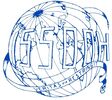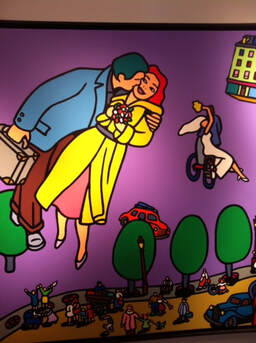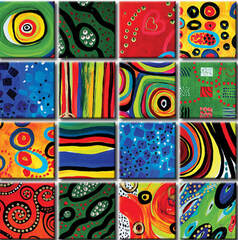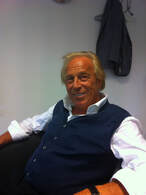WORKSHOPS in English and Spanish language
A new Practice of Marital Therapy: the Phase Consistent Marital Therapy- model ( FCMT)The FCMT-model is a brief, practical , interventive and sometimes psycho-educational method of maximum 6 sessions for a very diverse (also more or less psychiatric -oriented) type of relational questions of couples in marital - distress . Compared to other marital therapy models , the FCMT is not monomethodic or proces-oriented ; eg. it offers possibilities to hop from one problem area…to a task area …to another theme…to a new relevant issue.
FCMT offers a direct practical approach with the male as well as female partner in the presented problematic relationship. Very characteristic of the FCMT-model is the emphasis on focussing , collecting information and interviewing differently as a therapist, depending on which specific life-cycle phase (stage) the couple finds itself . Rick Pluut distinguishes 7 phases. For every life-cycle phase a specific cluster of interventions should be or can be used . Relational risk factors, which the couple brings along, are identified and are relevant for the choice of how to interview and of the type of interventions as well. Another fundamental aspect of the FCMT-model is to make a short evaluation at the beginning of the therapy sessions to check out if there is a discrepancy between the “calendar" life cycle and the “ behavior" life cycle in the relationship of the couple. This is important to know in order to decide what the starting point will be of their marital therapy. Learning Objectives of the workshop (5—6 hours) ; 1 or 2 days .
|
Working effectively with remarried Couples and Families.This workshop will provide participants a series of practical and logical ideas plus simple tools to be more effective in treating and/or advising remarried families, couples or individuals and to avoid falling into some classical (emotional) traps.
This pragmatical model consists of creating a simple new colour-genogram to be used as a central hallstand . Stagnations with transitions, painfull themes ,conflicts , difficult choices on what to do or where to stay , can all be linked to this simplifying map . In this way dilemmas and conflicts become more understandable for the family (couple) members and even for the therapist or coaches. The workshop will explain how family members and couples create rules , myths , and belief-systems ( both logical and illogical ) in order to survive . Tensions arrise when old habits and rules are transplanted into new relationships. The workshops explains furthermore classical pitfalls for therapists and families. The above facts and concepts will assist the helpers in the field to make choices who to invite , in which order to make appointments with the clients and how to provide a less emotional overview. Different kind of riskfactors for remarried couples and families will be presented. On this basis therapists can explain more professionally which options are possible , impossible or out of the question . When to work psyco-educational and when to help more in the direction of realistic change is a therapeutic choice and will be made clear in this workshop. Learning Objectives of the workshop (3---6 hours) ; 1/2 or 1 day.
|
Creativity at Work with Families and Couples.
In order to reach different types of family members, age groups, verbal or visual oriented persons , this workshop will show a wide selection of creative and mostly non-verbal possibilities to collect information and create different interventions.
Apart from genograms ( great for training, but boring for clients) the use of illu-grams , organo-grams and colour-grams will be demostrated. Other visualisation techniques such as the use of space, sculpting, puppets, role playing toys, drawings, metaphores, metaphorical objects and playful tasks can also become part of your repertoire. These techniques help to create a more relaxed atmoshere in your sessions . These visualisation techniques are also helpfull in engaging children, youngsters and less intellectual/cognitive clients and make them feel more at ease. This way they can participate better and benefit more from the sessions. Learning objectives of the workshop
|
Bio Drs.Rick Pluut
1977 Drs. Clinical Psychology, Vrije Universiteit Amsterdam ( orientation CBT and client-centered )
1977 - 2017 Psychiatric Center Willibrord clinical psychologist/psychotherapist outpatient services 1980 - 1984 Specialization in Systems Therapy /Family therapy :strategical and structural model 1984 - Now. Director ISSOOH. First Dutch Systemic Training Institute . Certified Trainer and Supervisor in Systems Therapy. 1990 Co-founder of EFTA : the European Family Therapy Association 1990 - 1999 Boardmember of EFTA . 1990 - 2000 Editor EFTA -News 2004 - 2012 Member Scientific Training Committee of the Academia de la Terapia Familia in Rome ,Italy. 2004 - 2007 Member Training Advisory Committee of the Dutch Association of Family Therapy. 2008-present Private Practice in Consultation and Supervision. Since 1998 National and International Workshops on : Couples Therapy ,Remarried Systems, Creative and Non-verbal techniques , Bi-cultural marriages , Addiction , Roles of the Therapist , 100+ workshops and presentations in 24 countries in 4 languages. |
contact information
Rick Pluut +31 (0)6-5155 6782
e-mail: rickpluut@ziggo.nl
Rick Pluut +31 (0)6-5155 6782
e-mail: rickpluut@ziggo.nl




